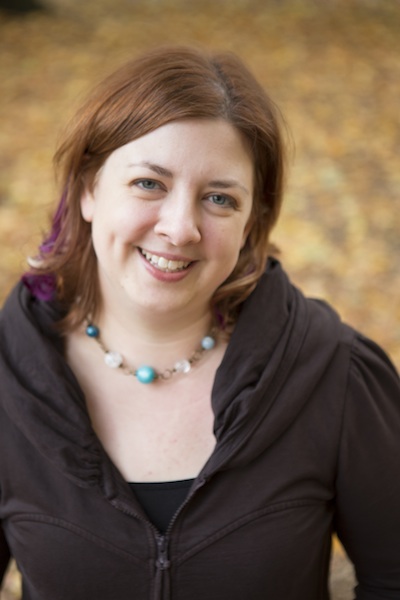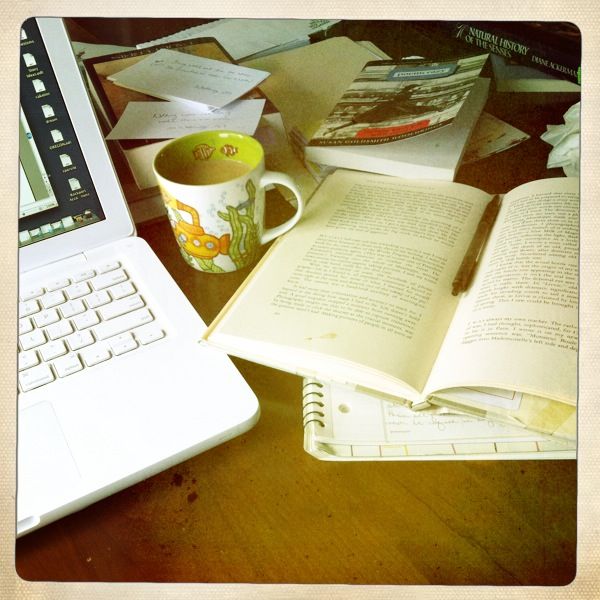The Beauty of What I Love
 Wednesday, November 23, 2011 at 12:48PM
Wednesday, November 23, 2011 at 12:48PM 
"It is a tremendous act of violence to begin anything," said Sagittarian poet Rainer Maria Rilke. "I am not able to begin. I simply skip what should be the beginning." I urge you to consider trying that approach yourself, Sagittarius. Instead of worrying about how to launch your rebirth, maybe you should just dive into the middle of the new life you want for yourself. Avoid stewing interminably in the frustrating mysteries of the primal chaos so you can leap into the fun in full swing. (Wise words in my horoscope for the week of 11/24/11 from Rob Brezsny's Freewill Astrology)
I saw Dar Williams in concert last Sunday night, and as always, she was delightful. I love her shows because in addition to being a fantastic singer and songwriter, she's generous, funny, and oh-so-real. Real as in human and authentic and true. Real in that I'd-like-to-be-your-friend way. In-between songs she tells stories about life and music and the intersections of the two. She's at ease and also perfectly quirky at the same time. She makes me want to be her neighbor.
What I love most (besides the music) is the sense of community Dar builds when she's on stage. (And yes, I know I keep calling her "Dar" as though we're BFFs or something, which we're not, even though I met her after the show and she was ever so nice. But calling her "Williams" feels too stuffy, and not what I'd call my neighbor.) So, this sense of community: It might be just Dar and a guitar (plus a keyboardist this time) up there on stage, but I always feel like I'm part of something at one of her concerts. The audience always contains plenty of true fans who are comfortable calling out questions and comments, all in the spirit of conversation. (What's the opposite of a heckler? A supporter? Merriam-Webster supplies only "near antonyms" for heckler, including defender, soother, succorer, and comforter. Comforter: Now I'm picturing an audience of cozy comforters and downy duvets snuggled into the chairs, which actually feels about right.) Dar interacts with this audience of anti-hecklers, answering and joking and asking her own questions, continuing that conversation with comfort. She sings, the audience sings. We're there to listen to her, but I suspect a lot of us are there for a sort of sing-a-long, too. Her music makes us participants in something larger than ourselves.
As she told a story on Sunday she made a passing mention to one of her songs, a crowd favorite. The audience murmured in excitement, thinking she was going to play it next, but that wasn't the plan. She played a different song, and then said, "Okay, I can't mention a song and hear you all say 'Oh!' and then not play it. Help me out on this one if I need it; I haven't played it in awhile, but here we go." And there we went, Dar playing guitar and singing, the audience singing too, all of us in it together.
The last time Dar was in town before this, she was sick. She'd started to lose her voice just before the show, and by the time she got on stage (just her and her guitar this time), it was leaving fast, to the point that she had to change her set list and even the key of some songs so she could hit the notes. And that time, it really was a sing-a-long. I don't remember if she asked us to help her out, or if we spontaneously raised our voices, but that time we truly were in it together. On Sunday she said, "Last time I was here you all really showed me the love. Thank you for that."
I don't know if I'll ever be Dar Williams' neighbor, but I'm trying to be more like her. When people read my words, I want them to feel like I feel when I'm sitting in a dark theatre listening to Dar (and the comforters around me) sing. I want my readers to feel connected, not just to the words and ideas on the page, but to the world, to each other, to the divine, to themselves.
Lately I've been thinking a lot about what I'm really called to do in this world. I know I'm meant to write, but is there a deeper purpose to my stringing together words that sound and taste good? I feel a lot of angst around this question. I just want to create beautiful stories with meaning. Is that enough? Am I making it too complicated (as I'm wont to do)?
I know other writers who feel called to use their words and work for social justice, for peace, for emotional healing, for environmental responsibility. I care about all of those issues and more, and sometimes I may write about them. But I keep wondering what my "thing" is, as though I have to declare some sort of stance, to choose a major in this university of life. This obsession is curious, since I'm not much for labels or structures or limits. I'm rarely able to choose a straight and narrow path and declare absolute allegiance to one thing over another. I'm not suggesting that the writers I'm referring to above do this either; everyone is multi-faceted and complex, with nuance and shades of personality. But I've been hoping to find that elusive one thing to define myself and my work, something I can call my own, something to call me. (I could talk at length about the reasons I want this kind of self-definition while also rejecting such limits, but that's a story for another time, one I'm sure I'll have to write eventually.)
Being at Dar's concert reminded me of what I love to do: to create beautiful stories with meaning. Dar writes about a lot of things, including politics, social justice, the environment, art, family, psychology, and Greek mythology. Those are good and important things, but I never pigeon-hole her as an activist artist or a parent or any other one thing. She writes and performs songs of beauty and meaning.
The opening act on Sunday was an amazing local artist named EMay (a.k.a. Erika May), who quotes Rumi in one of her songs: "Let the beauty of what you love be what you do." Maybe my work in this world is to simply do what I love: to use words to create connections, to beckon beauty, to craft something that makes me and those who read it feel alive. What do I call this calling? I don't have any other word for it but writer.





